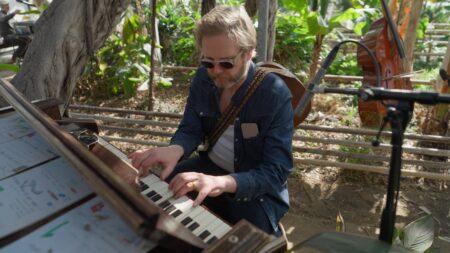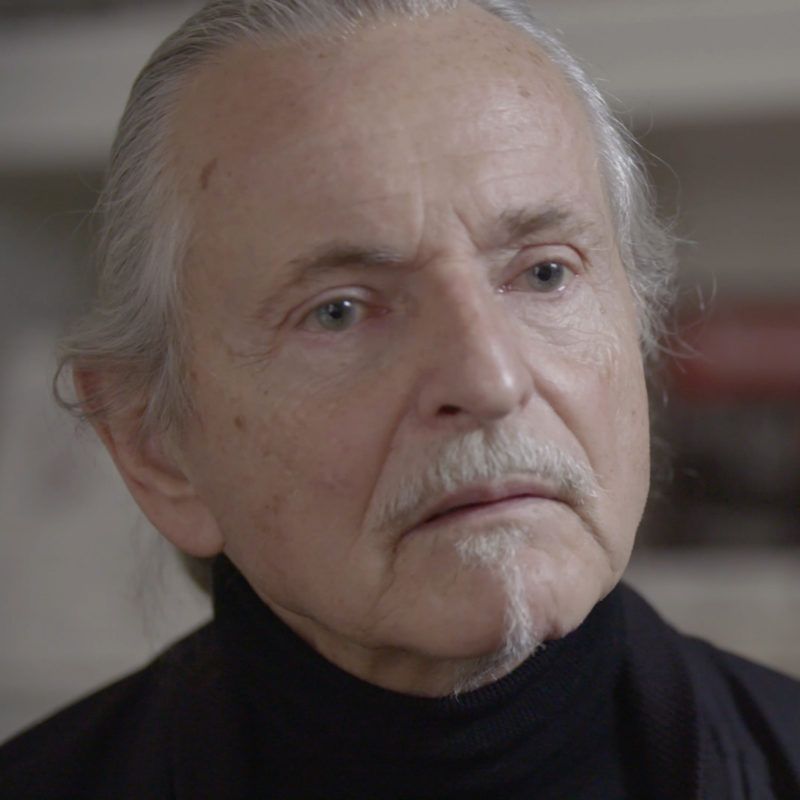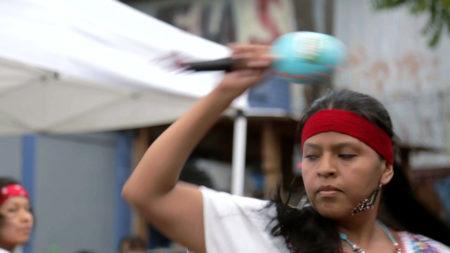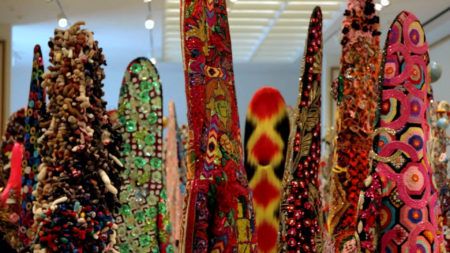Continue playing
(Time remaining: )
Play from beginning
Continue playing "{{ controller.videos[controller.getVideo(controller.currentVideo)].segmentParentTitle}}"
{{controller.videos[controller.getVideo(controller.currentVideo)].title}} has ended.
PeaceKrzysztof Wodiczko
“You cannot work towards peace being peaceful” says artist Krzysztof Wodiczko, who explains this paradoxical position in terms of his personal experiences growing up in Poland under communist rule. Filmed at the Center for Advanced Visual Studies at MIT in Cambridge, Massachusetts, Wodiczko’s interview is punctuated by the sound of sirens from outside, the city in a state of “full alert.”
Credits
Producer: Wesley Miller & Nick Ravich. Interview: Susan Sollins. Camera: Gary Henoch. Sound: Steve Bores. Editor: Joaquin Perez. Special Thanks: Catherine Tatge, the Center for Advanced Visual Studies, and the Massachusetts Institute of Technology (MIT).
Closed captionsAvailable in English, German, Romanian, Italian, Japanese, Korean, Chinese, Italian
Through the Art21 Translation Project, multilingual audiences from around the globe can contribute translations, making Art21 films more accessible worldwide. Translate this video now.
Interested in showing this film in an exhibition or public screening? To license this video please visit Licensing & Reproduction.
By appropriating public buildings and monuments as backdrops for projections, Krzysztof Wodiczko focuses attention on ways in which architecture and monuments reflect collective memory and history. Projecting images of community members’ hands, faces, or entire bodies onto architectural façades, and combining those images with voiced testimonies, Wodiczko disrupts our traditional understanding of the functions of public space and architecture. He challenges the silent, stark monumentality of buildings, activating them in an examination of notions of human rights, democracy, and truths about the violence, alienation, and inhumanity that underlie countless aspects of social interaction in present-day society.
“You cannot work towards peace being peaceful.”
Krzysztof Wodiczko
Social Change
Kerry James Marshall
Tania Bruguera
Nick Cave



